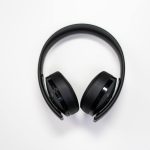Dr Mike Ryan, who heads the WHO’s public health emergencies program, said the International Health Regulation, which has been adopted by member states, recommends the traveller “should not suffer economically from measures designed to protect the health of the population as a whole”. “That is then unfairly burdening an individual with the cost of a public health action,” he said. “When you go into quarantine … you should get the support of the government and not have to pay for that.” He said the purpose of measures like quarantine was to protect citizens.“The question (is) who should bear the (economic) burden of that protection? The state doing the protection of its own citizens, or the traveller coming into that country?”When Australia first closed its borders to international arrivals, the mandatory two-week hotel quarantine program was free for returning Australians. That changed on July 1 2020. Since then, travellers have had to pay a minimum $3000 for the 14-day stay, with additional adults incurring a $1000 charge and children $500 each. As recently as Wednesday night on ABC’s 7.30, Prime Minister Scott Morrison refused to be drawn on whether fully vaccinated Australians returning home could quarantine at home. With some Australians reportedly spending more than $10,000 to return home, Dr Ryan said wealthy countries needed to consider helping their citizens. “It’s a recommendation from the committee that all states should seriously consider the arrangements they put in place, how these arrangements are put in place, and the fairness of those arrangements vis-a-vis the traveller,” Dr Ryan said. He added that the principle was “less clear” for non-citizens, and that it was a difficult situation for countries that could not afford to pay for quarantine.
Powered by WPeMatico






